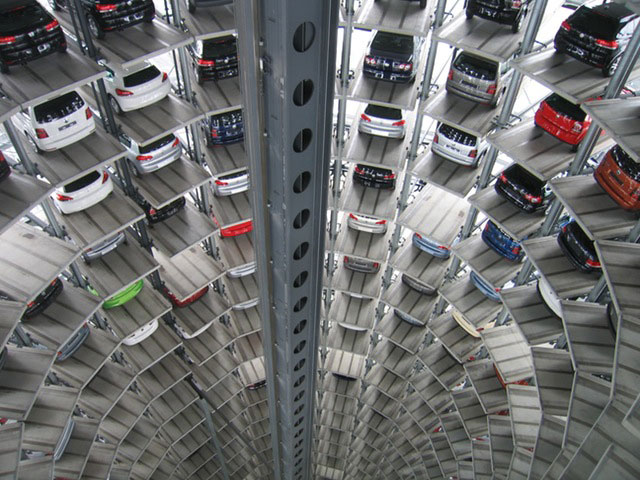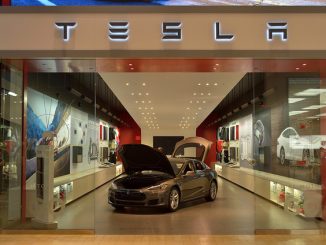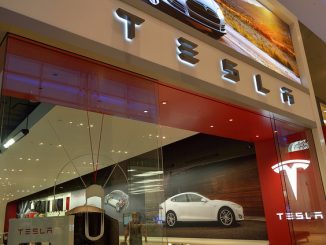
After months of speculation, and especially after Tesla CEO Elon Musk made a surprise visit to China and met with Vice Premier Wang Yang in April, an emailed statement confirmed that Tesla (NASDAQ:TSLA) is indeed negotiating with the Chinese government so it could open a factory in China, specifically, in the Shanghai region. While it is unclear when the manufacturing facility would be built, the move seems to be in line with Tesla boss Elon Musk’s promise to produce half a million cars annually starting in 2018.
Details are still sketchy, but at least a couple of things are certain. First, China’s government requires that a foreign company can only set up shop in China if it partners with one of its local Chinese manufacturers. Second, the foreign company cannot own more than 50% of the joint venture.
It isn’t clear yet who Tesla will be tapping to be its Chinese partner. But there’s talk that internet giant Tencent Holdings is a likely candidate, particularly because it recently spent $1.8 billion to acquire a 5% stake in Tesla.
Another big question is: which among its EVs does Tesla plan to manufacture in China? Tesla is choosing to keep silent about this for now. But logic dictates that the most feasible will be Tesla’s mass-model car — the Model 3 sedan.
If Tesla’s plan for a China factory pushes through, and it seems like it’s only a matter of time, it will mean a big boost for the company. As it is, China imposes a 25% import tax on vehicles bought outside the country. So if Tesla makes its car on China’s soil, that import tax will no longer be applicable, and that will allow the company to sell its cars at a more affordable price. Not that the high price of a Tesla EV is deterring those who are determined to own one. As sales figures show, there are a lot of Chinese who are willing to pay a premium price for a high quality electric car.
Last year, Tesla reported revenue of over $1 billion from sales in China. That’s estimated to be the equivalent of around 11,000 vehicles, which accounts for nearly 15% of Tesla’s total sale of 76,000 cars. In 2015, revenue from China only accounted for 8% of Tesla’s total revenue. That’s around $319 million, which means it more than tripled in 2016.
Of course, Tesla’s biggest market is still the U.S. But China has so much potential, now more than ever because of the nation’s effort to shift to clean energy and improve air quality. There’s also the matter of Chinese consumers preferring international car brands over locally made cars because they believe domestic brands aren’t as safe or as cool-looking.
Tesla won’t be the first auto maker to build a factory in China. But it may have a special kind of advantage over others. As Bloomberg reported, Wang Yunshi, director of the China Center for Energy and Transportation at the University of California was quoted as saying: “Tesla has Elon Musk, who is the Steve Jobs of EVs. Chinese officials get inspired by Musk. He’s a software guy who can come up with such capable cars, while so many engineers from our carmakers still cannot make something that decent.”




Leave a Reply